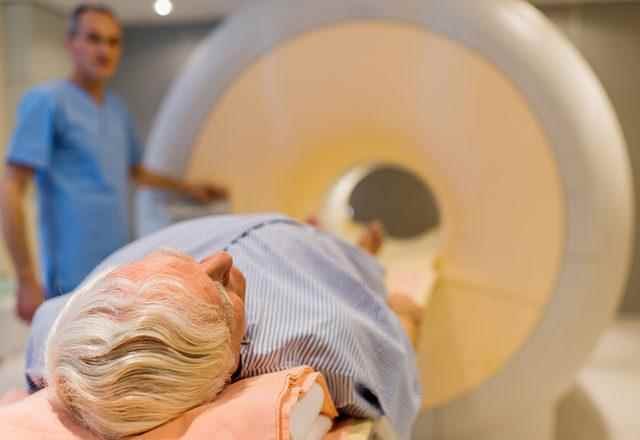Prostate cancer is among the most common types of cancer in men. Prostate cancer occurs as a result of the abnormal course of some cells that make up the prostate tissue, forming tumor structures. Prostate cancer, which is usually seen over the age of 65, can progress without any symptoms. People with a family history of prostate cancer are 2-3 times more likely to develop the disease. Prostate cancer, which increases the risk of being seen with age, ranks second among cancer-related deaths. For this reason, cancer must be detected early and treated correctly.
MEDICINE TREATMENTS MAKES A SMILE
Explaining at the Oncological Sciences Symposium, immunotherapy, which is used in addition to chemotherapy and radiotherapy, which has been used in cancer treatment for many years, and which makes a difference with its technology, comes to the fore in treatment. Dr. Necdet Üskent draws attention to the fact that drug treatments make people smile, and that newly developed drugs also prevent the recurrence of prostate cancer. Giving information about the immunotherapy method, which is increasingly used in prostate cancer, Prof. Dr. Necdet Üskent said, “With this method, immune system cells are activated to fight the tumor. It is almost as if a war against cancer is being started in the body. The most important difference of immunotherapies from chemotherapies is that they do not contain chemicals and direct the body’s natural warrior cells to the tumor. Since it targets the immune system, not the tumor like chemotherapy, it has much less side effects compared to chemotherapy.
FAMILY BREAST CANCER INCREASE THE RISK OF PROSTATE CANCER

According to recent studies, the presence of breast cancer in a family history also increases the risk of prostate cancer. Explaining that mutations in BRCA1 and BRCA2, which cause breast cancer in women, can also cause prostate cancer in men, Assoc. Dr. İlker Tinay said, “Men with family histories in this direction should start screening for prostate cancer at the age of 40. Although prostate examination is avoided for some cultural reasons, there is a chance for more effective treatment in patients who are diagnosed early. Assoc. Dr. İlker Tinay said, “As with every disease, a healthy lifestyle should be adopted to reduce the risk of developing prostate cancer. A balanced diet, physical activities that ensure an active daily life, and regular doctor check-ups are important.
FASTER HEALING WITH ROBOTIC SURGERY

Robotic surgery, whose star is getting brighter every day, can be applied in cases where the disease is limited to the prostate. The most common area of use of robot-assisted surgeries all over the world is urology. The most common and most successful area of use in urology, one of the 5 surgical areas in which robotic surgery is most widely used, is radical prostatectomy (removal of the prostate), the surgical treatment of prostate cancer. Thanks to robot-assisted surgery, which is becoming more and more preferred day by day, smaller incisions are made in the operation area and the patient’s pain is significantly reduced. In addition, it has many advantages such as lower infection risk, better and faster recovery, and shorter discharge. Assoc. Dr. İlker Tinay said, “The robotic arms under the control of the surgeon can do all the movements of a human hand with their ability to move 540 degrees. This method, which allows the operation to be performed in high resolution and under 3D vision with optical magnification, provides great comfort to the surgeon throughout the operation.
LESS EFFECTS WITH RADIATION ONCOLOGY

One of the fields where technology is developing rapidly is Radiation Oncology. Thanks to the devices that focus only on the tumor and do not harm the surrounding tissues and organs, the disease is treated much more successfully, and the patient’s quality of life is preserved with fewer side effects. prof. Dr. Hale Başak Çağlar, “There is only one common purpose and responsibility brought by the principle of multidisciplinary approach in prostate cancer treatments; To keep the patient’s quality of life high by applying the most accurate and effective treatment. Radiation oncology, with its strong role in almost every stage of prostate cancer, also contributes to this process. Today, it has come to such a point that in localized prostate cancer (only seen in the prostate), radical radiotherapy has equal success rates with radical surgery. Therefore, with radiotherapy, it is now possible to get a good result without surgery and without removing the prostate. Moreover, the side effects are less and the patient does not have to come to the hospital every day as in the past.
